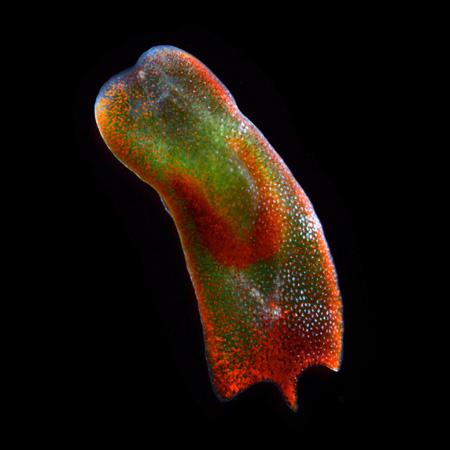A_O, of course, that is what evolutionists mean when they speak of mEve. Of course. Where did I ever indicate otherwise?Bob. You have totally misunderstood mitochondrial Eve... Mitochondrial Eve is not the ONLY woman we trace our ancestry...
And you might be more clear if when you explain:
You'd be more clear if you'd add: "of the entire human race."She is simply the single DIRECT female ancestor.
"mEve is simply the single DIRECT female ancestor of the entire human race." -What A_O should make clear.
And yes, evolutionists believe there were many before her, and beside her, but she is the ONE WOMAN from whom geneticists claim the whole existing human race has descended from.
Wanna bet?And yes there is the idea of a Y-chromosomal Adam also. But those two individuals probably didn't live at the same time and probably not even in the same place.
A_O, you do recall the surprise from the evolutionary geneticists that they have determined there is an actual single female mEve? Yes, they believe there were countless hominds before her, and many beside her, but they were surprised to find that they could trace the human race to one woman. Do you recall this?So even with mitochondrial Eve and Y chromosomal Adam, we're still looking at thousands of ancestors for modern humans.
Regarding Y-chromosomes, the human race descended from Noah, and that explains the unity of the Y among men.
HOWEVER, now that the chimpanzee Y chromosome has been sequenced, evolutionists are "surprised" once again, and team leader David Page of the Whitehead Institute for Biomedical Research in Cambridge Mass., said in Nature (1-14-2010), that the human and chimp Y chromosomes are "horrendously different from each other." Horrendously? A_O, is that a scientific term? Why not just, "different?" Why horrendously so? Because for modern Darwinism to not lose face, chimps have to be shown to be our closest relatives. Yet the chimp's Y chromosome (that which makes us reproducing males... well, males...):
- has only 66% of the genes that we do
- codes for only half the proteins ours does
- has 30% of the entire Y that can't be aligned to our Y
- and the human Y has 30% that doesn't line up to the chimps
So, this Cambridge team leader said, "the relationship between the human and chimp Y chromosomes has been blown to pieces." So A_O, that's why a scientist would say: horrendous.
But don't worry, as Jukia would say, "Bob's just making more out of this than the original paper does." No doubt.
So, that octopus is looking more like us every day
-Bob Enyart

come on... come on baby... you can do it... everybody else did... come on...

